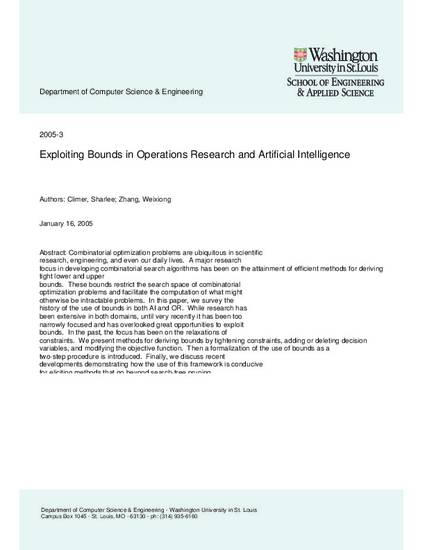
Combinatorial optimization problems are ubiquitous in scientific research, engineering, and even our daily lives. A major research focus in developing combinatorial search algorithms has been on the attainment of efficient methods for deriving tight lower and upper bounds. These bounds restrict the search space of combinatorial optimization problems and facilitate the computa-tion of what might otherwise be intractable problems. In this paper, we survey the history of the use of bounds in both AI and OR. While research has been extensive in both domains, until very recently it has been too narrowly focused and has overlooked great opportunities to exploit bounds. In the past, the focus has been on the relaxations of constraints. We present methods for deriving bounds by tightening constraints, adding or deleting decision variables, and modifying the objective function. Then a formalization of the use of bounds as a two-step procedure is introduced. Finally, we discuss recent developments demonstrating how the use of this framework is conducive for eliciting methods that go beyond search-tree pruning.
Available at: http://works.bepress.com/sharlee-climer/19/
